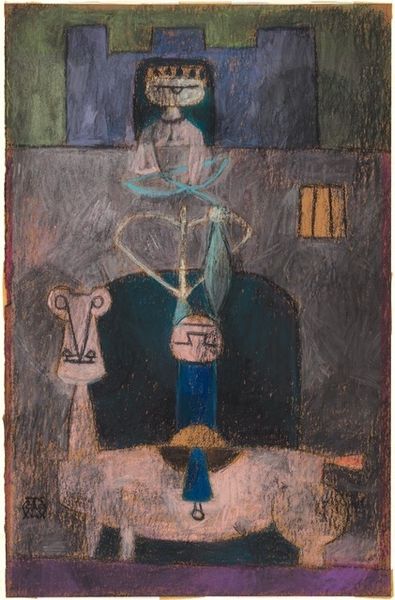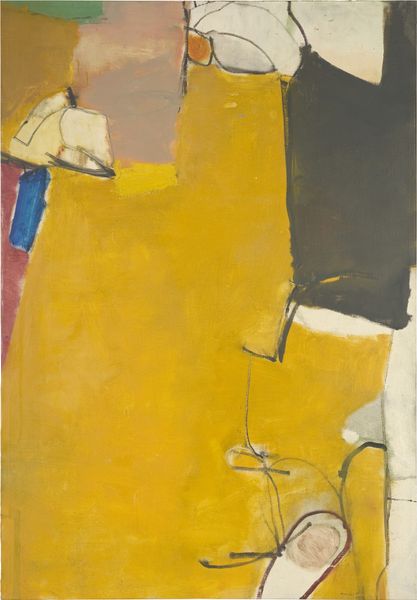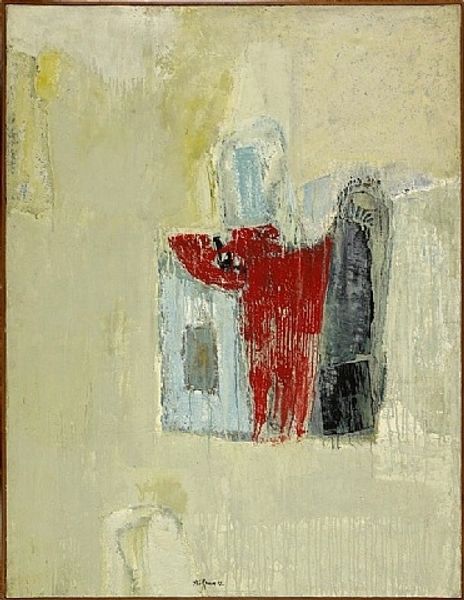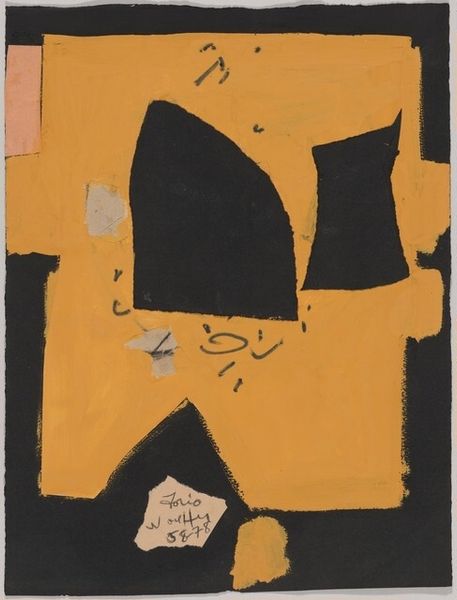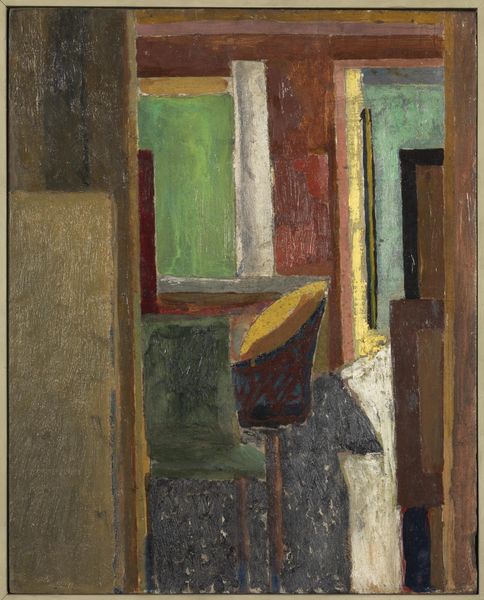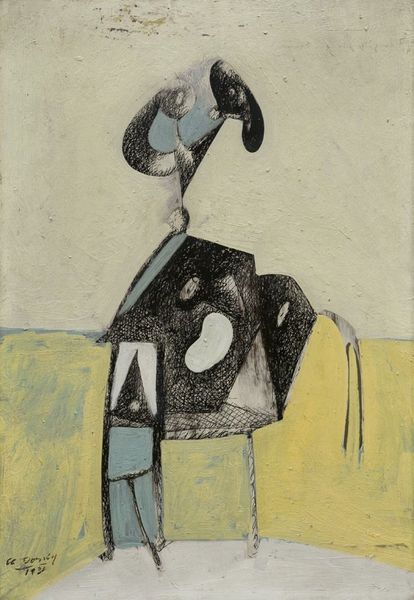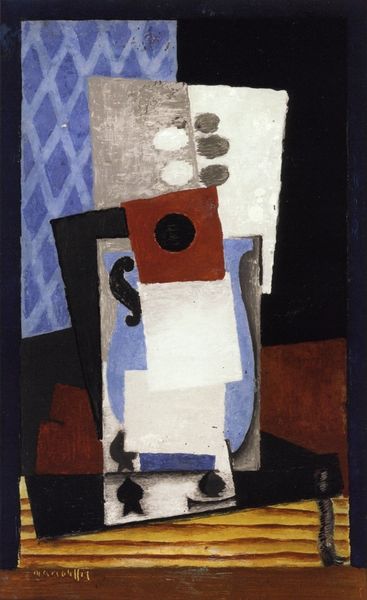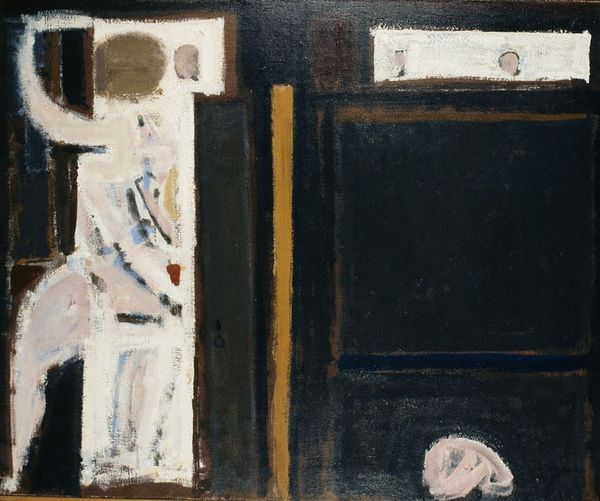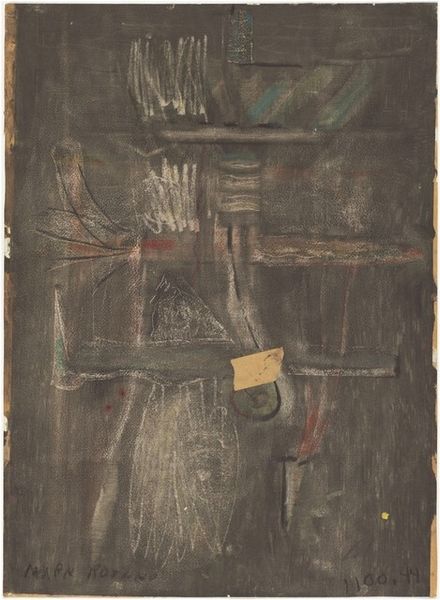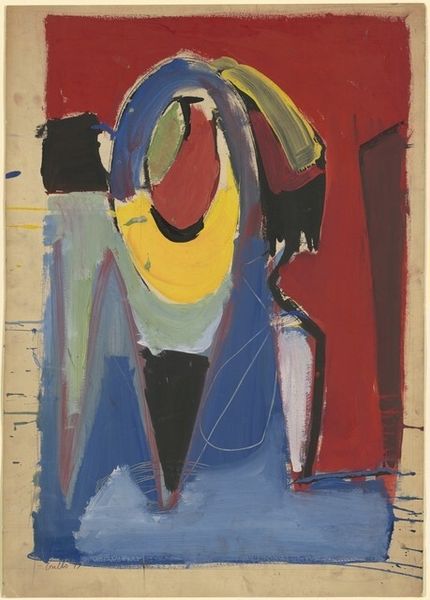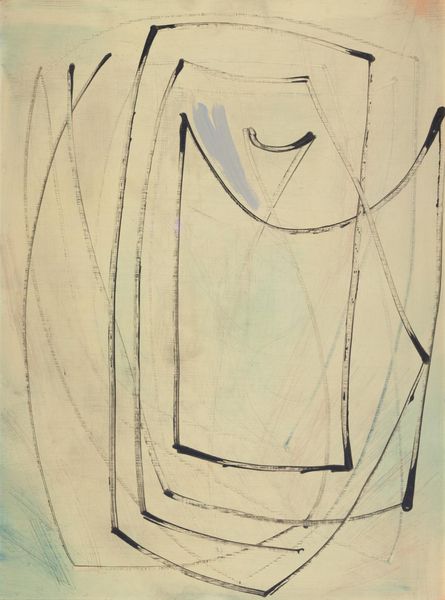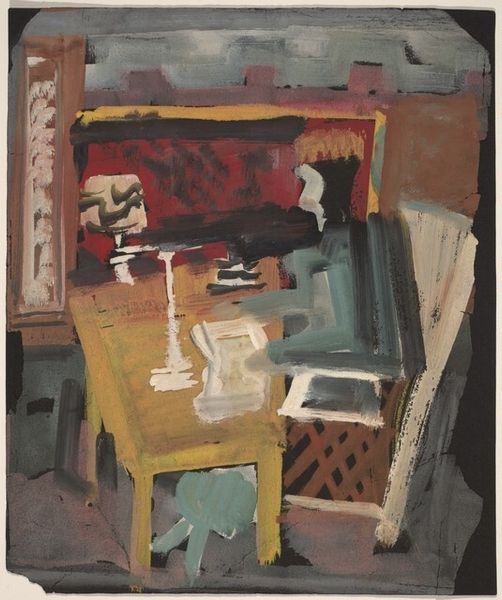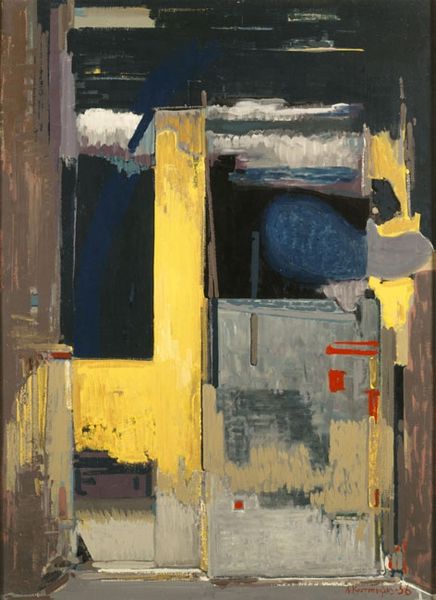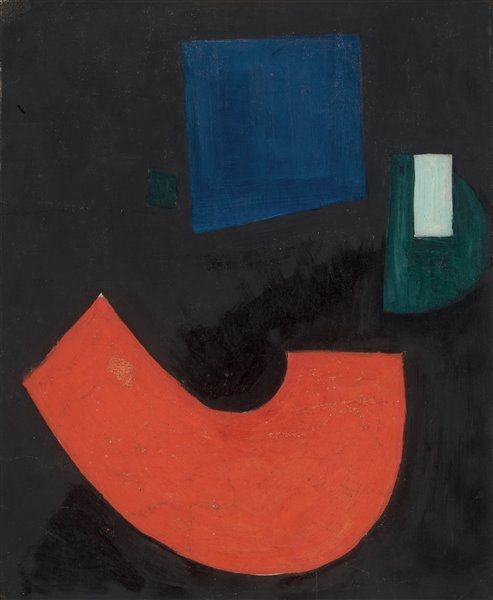
Dimensions: support: 1530 x 1219 mm
Copyright: © Alan Davie | CC-BY-NC-ND 4.0 DEED, Photo: Tate
Editor: This is Alan Davie's "Image of the Fish God," currently residing in the Tate Collections. The composition feels so weighted and symbolic. How do you interpret the formal elements at play here? Curator: Observe how Davie manipulates the materiality of paint itself. The textured surfaces, contrasting stark black and white against the subtle blue ground, create a visual tension. Semiotically, the forms invite decoding: the orb, the rectangle, the ambiguous "fish" shape. What is their relationship? Editor: It almost feels like a puzzle—the shapes themselves creating meaning beyond representation. Curator: Precisely. The structural interplay is paramount. The painting becomes a self-referential system, inviting us to consider the very nature of sign and symbol. It moves beyond a mere image of a god. Editor: I see. So, the painting itself becomes the subject, a conversation about form and meaning. Curator: Indeed. Davie compels us to look beyond the surface and engage with the underlying structure of visual language.
Comments
tate 9 months ago
⋮
http://www.tate.org.uk/art/artworks/davie-image-of-the-fish-god-t01748
Join the conversation
Join millions of artists and users on Artera today and experience the ultimate creative platform.
tate 9 months ago
⋮
Davie’s paintings are characterised by a variety of personal pictograms, shapes and symbols that he has defined as ‘primordial’. He believes that they have ‘many and varied meanings’, which he leaves open to poetic interpretation and free association. Image of the Fish God has a totemic monumentality that evokes ancient cultures and shamanistic beliefs. The black form may be seen as figurative, and the central diamond is reminiscent of an all-seeing eye. Gallery label, July 2012
